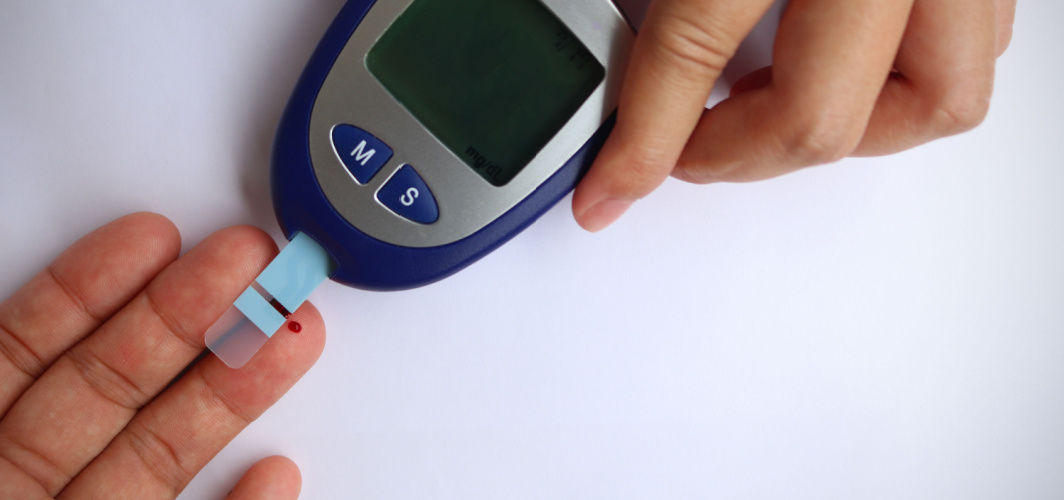Diabetes Management
Having a Diabetic Parent Can Increase Your Risk by 30%: Study
2 min read

We often think whether having a diabetic parent can influence an individual's chances of inherting diabetes. Recent studies suggest that having a diabetic parent can elevate an individual's risk by 30%. Understanding this genetic link is crucial for those navigating the complexities of diabetes prevention and management.
Genetic Predisposition
Genes play a pivotal role in determining an individual's susceptibility to diabetes. When one parent is affected by diabetes, there's a heightened likelihood that their offspring may inherit certain genetic markers associated with the condition. These genetic threads, combined with environmental factors, can contribute to an increased risk of developing diabetes later in life.
The 30% Risk Increase
Research conducted by leading health institutions shows that having one diabetic parent raises the risk of developing diabetes by approximately 30%. This statistic underscores the importance of awareness and proactive measures, especially for individuals with a family history of diabetes.
Environmental Factors
While genetics play a key role, environmental factors such as diet, physical activity, and lifestyle choices are also quite significant. Individuals with a diabetic parent can mitigate their heightened risk by adopting a healthy lifestyle. This includes maintaining a balanced diet, engaging in regular physical activity, and managing stress effectively.
Early Detection and Prevention
Awareness of familial diabetes history empowers individuals to take proactive steps towards early detection and prevention. Regular health check-ups, including blood glucose monitoring, can aid in identifying potential issues at an early stage. Lifestyle modifications, such as adopting a diabetes-friendly diet and maintaining a healthy weight, can be pivotal in preventing or delaying the onset of diabetes.
Educational Initiatives
Public health campaigns and educational initiatives are instrumental in raising awareness about the genetic predisposition to diabetes. Encouraging individuals with diabetic parents to undergo regular health screenings and adopt a proactive approach to their well-being can significantly impact long-term health outcomes.
Conclusion
While the studies present statistics about an individual’s susceptibility to diabetes, understanding genetic predisposition and making informed lifestyle choices are necessary. By being vigilant about health, staying informed, and adopting a preventive mindset, individuals can navigate their genetic landscape with resilience.
You can also try Apollo 24|7’s Diabetes Self-Management Tool to log your sugar values, track patterns, know all about food nutrition and more.
Diabetes Management
Consult Top Diabetologists
View AllLeave Comment
Recommended for you

Diabetes Management
Smart Snacking Strategies for Energy and Prediabetes Management
In the fight against prediabetes, every bite matters. By choosing healthy Indian snacks, you can maintain your blood sugar levels while enjoying the taste. Dairy products, whole grains, fruits, makhanas, chaats, and oats are just some of the smart food choices that provide sustained energy and keep you satisfied throughout the day.

Diabetes Management
Prevalence of Diabetes in India & its Risk Factors
Diabetes is a growing health crisis in India, with over 100 million diabetics and 136 million pre-diabetics. The prevalence of this condition has surged due to factors like unhealthy diets, sedentary lifestyles, obesity, and genetics. A comprehensive strategy encompassing public awareness campaigns, lifestyle changes, and better healthcare access is essential to combat this epidemic. Healthcare providers, particularly primary care physicians, have a vital role in educating patients about diabetes prevention, early detection and management.
.png?tr=q-80)
Diabetes Management
Effective Ways to Manage Diabetes and Stress
Effective diabetes and stress management involves regular exercise, mindfulness practices, controlled eating, leisure activities, peer interaction, open communication with loved ones, acknowledging emotions, and seeking professional help when needed. These strategies aid in ensuring your overall well-being while living with diabetes.
Subscribe
Sign up for our free Health Library Daily Newsletter
Get doctor-approved health tips, news, and more.
Visual Stories

8 Fruits That are Incredibly Healthy for Diabetes
Tap to continue exploring
Recommended for you

Diabetes Management
Smart Snacking Strategies for Energy and Prediabetes Management
In the fight against prediabetes, every bite matters. By choosing healthy Indian snacks, you can maintain your blood sugar levels while enjoying the taste. Dairy products, whole grains, fruits, makhanas, chaats, and oats are just some of the smart food choices that provide sustained energy and keep you satisfied throughout the day.

Diabetes Management
Prevalence of Diabetes in India & its Risk Factors
Diabetes is a growing health crisis in India, with over 100 million diabetics and 136 million pre-diabetics. The prevalence of this condition has surged due to factors like unhealthy diets, sedentary lifestyles, obesity, and genetics. A comprehensive strategy encompassing public awareness campaigns, lifestyle changes, and better healthcare access is essential to combat this epidemic. Healthcare providers, particularly primary care physicians, have a vital role in educating patients about diabetes prevention, early detection and management.
.png?tr=q-80)
Diabetes Management
Effective Ways to Manage Diabetes and Stress
Effective diabetes and stress management involves regular exercise, mindfulness practices, controlled eating, leisure activities, peer interaction, open communication with loved ones, acknowledging emotions, and seeking professional help when needed. These strategies aid in ensuring your overall well-being while living with diabetes.


